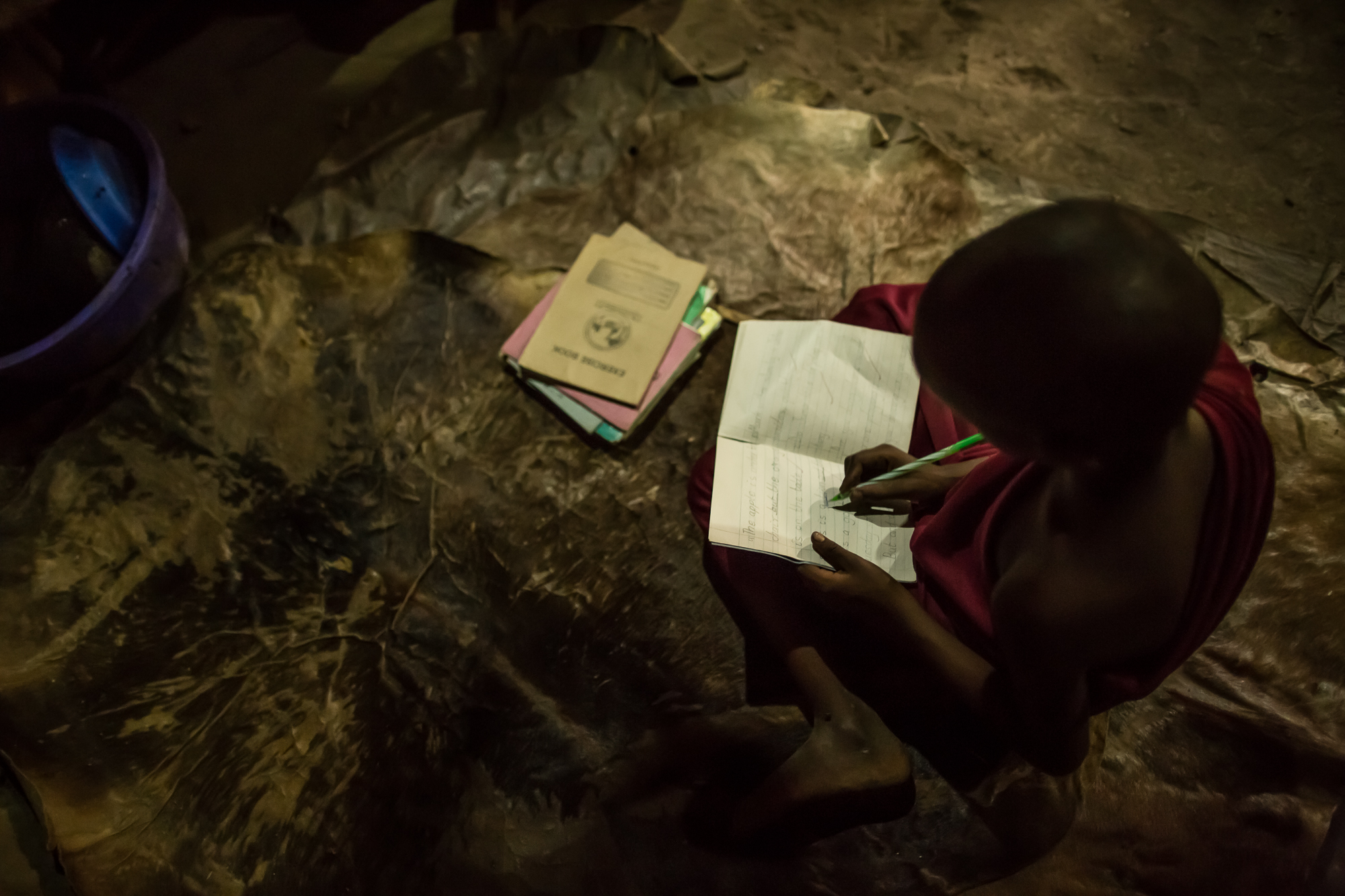The story of the Maasai people goes back centuries.
Over 500 years ago, these pastoralist communities first started migrating south from northern Kenya, following their herds along the Great Rift Valley and entering Tanzania around the 18th century.
Today, around half a million Maasai occupy 100,000 square miles of land scattered throughout the Arusha region of Tanzania, where tourists come from across the world to witness the native beauty of the misty mountains and plentiful wildlife.
The Maasai live in bomas—groups of houses arranged in a circle around a livestock enclosure.
Their lives are simple: women milk cattle, cook and collect water and firewood while men herd livestock. “The beauty of our Maasai culture is our love for one another,” says one Maasai woman.
However, the Maasai’s lives increasingly depend on the market economy. Women sell jewelry and grains at local markets; some children go to school; cell phones play a growing role in these once isolated communities.
As the Maasai modernize, they are faced with one major obstacle: When the sun disappears, so does the light.
Across the rural regions of Tanzania, just one in 10 people have access to electricity.
The lack of power limits progress and encumbers common tasks.
Life off the grid means falling on stones while walking at night. It means fear of stepping on lurking snakes or scorpions. Mothers deliver babies in the dark; children who wake in the night are fed and changed chiefly by touch.
Torches, candles and kerosene lamps flirt with disaster in huts made of trees and mud.
Teresia Olotai has dealt with these obstacles her entire life.
She is a mother of six and one of the senior “mamas,” as they are called, in the Lobulu boma near Arusha, Tanzania. She coordinates the chores and activities of the boma’s women as a mentor, leader and fixer.
She keeps the boma running on schedule and takes care of issues that arise within the community. New mamas in the boma would be lost without her.
Teresia knows that life can be hard for Maasai women.
They wake early to milk the cows, cook breakfast and prepare tea. Amidst sweltering heat, unpredictable weather and swarms of flies that descend on the village like snowfall, they hike more than 3 miles to get water—only to load up their donkeys and hike 3 miles back.
When the sun goes down, their responsibilities remain, but the obstacles grow.
“The greatest challenge we faced in our boma was the darkness in our houses,” Teresia says. “You can’t see anything at night.”
That all changed in 2013 when electricity arrived as part of a USAID Power Africa project.
The project installed solar microgrids to deliver power directly into the boma’s homes. It brought a refrigerator, water purification system and laptop. Two women from the community were trained to maintain the grid.
For Teresia and her neighbors, this transformed everything. They no longer needed to walk 3 miles to the road, buy bus fare to the city and pay a vendor to charge their phones. Now, they power them up at home.
“Mobile phones keep us connected with our loved ones, friends and family,” Teresia says.
The boma now owns a refrigerator to preserve food and medicine.
The light bulbs that line their livestock pens thwart animals and thieves.
Children study in their homes after school, and mothers need not dread a midnight labor pang.
“The life of my kids will be better because of the electricity,” Teresia says.
Electricity has brought more than just light to Lobulu bona.
It’s given the Maasai a door to the world.
When the project gave the community a laptop, it also trained one of its members to give computer lessons to the boma’s children.
“They wanted a person who could teach computer lessons to the children, and I was very interested,” said 20-year-old Elizabeth Moringe.
“They asked, ‘Is there an educated person in this boma?’ And I answered: ‘I am here.’"
Now, the bright faces of Maasai youth eagerly follow Elizabeth's instruction, learning skills they never thought they would.
Now that they have power, Teresia says life is safer, easier and better.
“We live a different life than before,” she says.
She wants her children to have an easier life than her own.
“They will have a life with electricity,” she says. “A life with light.”
Client: USAID
Client Website: stories.usaid.gov
Location: Arusha, Tanzania
Music: Ryan Huff
Cinematographer: Morgana Wingard
Editor: Morgana Wingard / Raegan Hodge
Awards: 2015 Silver Davey Award









